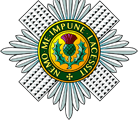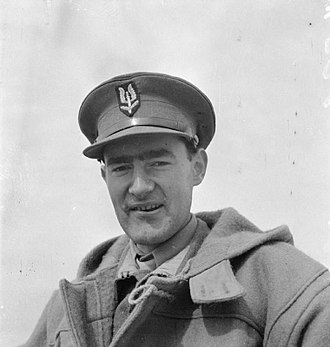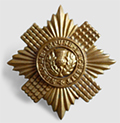Lieutenant Colonel Sir David Stirling Distinguished Service OrderOrder of the British Empire
Campaign:
World War 2
Died:
4.11.1990
The memorial is to Lt. Colonel Sir David Stirling OBE DSO - also known as the "Phantom Major" - who founded the Special Air Service at the height of WWII. Field Marshall Montgomery, who commanded the Allied forces in North Africa at the time, said, "The boy Stirling is quite mad, quite, quite mad. However, in a war there is often a place for mad people." David Stirling was born November 15th 1915 son of Brigadier Archibald Stirling of Keir and the Hon Margaret Fraser, 4th daughter of the 13th Baron Lovat. So he had a long pedigree in serving his country at times of need. At the outbreak of war he joined the Scots Guards but volunteered for the elite No 8 Commando unit and served in the Mediterranean. In North Africa in 1941, while recuperating from a parachute accident, he built on the idea of a small highly-trained special operations group attacking the Rommel's long supply lines. When he failed to gain access to his commanding officer General Auchinleck to argue his case, he just slipped past the guard and walked in (on crutches) - "who dares wins," indeed. Using the innocent-sounding name of L-Detachment Special Air Service and working alongside the Long Range Desert Group, small detachments drove behind enemy lines and attacked enemy airfields, communications and supply dumps. The highly-trained and well-motivated created chaos and the Italians and Germans had to use up more and more forces to guard their bases. The destruction of large numbers of enemy aircraft even allowed a naval convoy to reach Malta to relieve the beleaguered island. Field Marshall Montgomery - another unconventional soldier, gave Stirling his backing and Winston Churchill became so impressed by the unit's performance that it was made into a full Brigade. In 1943, Stirling was captured by the Germans, then escaped, but was captured by the Italians and became a prisoner-of-war. Hitler had ordered that all members of the SAS and other special forces should be executed but to his credit Field Marshall Rommel was the only German commander to ignore the order. During his time as a POW, he escaped four times and was eventually sent to the famous Colditz Castle where he remained for the rest of the war. In the meantime, his brother had taken over as commander of an SAS Brigade. The SAS expanded and became involved in escapades in many parts of Europe. The principles established led to the creation of the crack SAS Regiment which today forms the UK's premier special forces unit. David Stirling was awarded the OBE and DSO for his actions in war and was knighted in 1990 but died a few months later.
Memorial(s):
| Country | Location | Name of Memorial | Campaign | Names | Date(s) | |
|---|---|---|---|---|---|---|
| Scotland | B824 Doune Scotland | Doune Memorial to David Stirling | World War 2 |
David Stirling | 4-11-1990 | View |
| Scotland | Junction of A84 and George Street Doune Stirling Central FK16 6AB | Kilmadock Parish Doune War Memorial | World War 2 |
David Stirling | 4-11-1990 | View |
Further information:
Find more information about a specific soldier visit findmypast. The Scots Guards are delighted that their Enlistment Books from 1840 to 1938 are now available at:

If you have information on a specific memorial please send it on to the Historical Committee. The Memorial information required is:
- Who or what formation of the Regiment is named on the memorial. What event, dates or other inscriptions on the memorial.
- The country, nearest town/city or other details of location.
- A description of the memorial with a photograph if possible.
- For bigger sites a copy of any advertising information or leaflets would be useful.
Please sent any information that you find to: Michael Campbell-Lamerton
As the information on the database builds up Michael Campbell-Lamerton will be sending regular updates to Archives at RHQ who remains the point of contact about for inquiries on past members of the Regiment.



